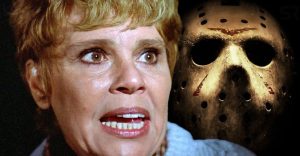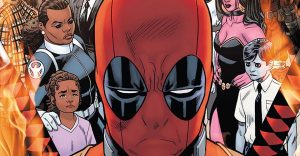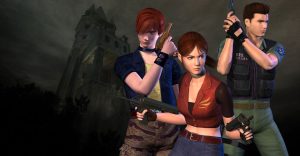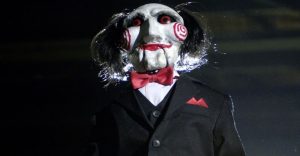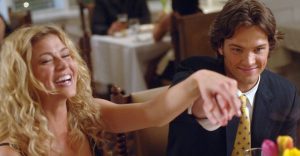Little Marvin Interview: Them
Anthology series Them is now on Amazon, following in the socially-inspired horror footsteps of movies like Get Out and shows like Lovecraft Country. The story starts in the 1950s, when Compton was aggressively white and unwelcoming of Black newcomers. The Emory family comes face to face with their virulent racism when they move in, but it turns out even their own home has an agenda too.
Series creator and producer Little Marvin spoke to Screen Rant about his inspiration for the tale of terror, as well as how he worked with various cast members to bring out the best performances.
When did you know that you wanted to create the show, and how did this all come about?
Little Marvin: I started writing it, I’d say, three or four summers ago during a time where I was waking up every morning and seeing videos on my phone of black folks being terrorized – either by the police or with the police. And it got me thinking a lot about terror and my own experience of terror, but also a history of that terror that stretches all the way back to the founding of this country.
The weaponization of public space against black folks has always been a thing, but what I had never seen explored was the tension between the public and the private, and that safest of spaces which is supposed to be the home. The show began with a question, which is what happens when that safe space turns on you too.
The Great Migration took place over 50 years, with 6 million African Americans moving from the south to the West Coast generally. Why was Compton the best setting for this series?
Little Marvin: It was really like the “Wow, I never knew” component, because I consider myself a student of history. I love history, I love Los Angeles; I think Los Angeles is a deeply weird and very creepy place – in all the right ways, but also crazy.
But I was digging in and researching, and I realized that here’s this place that occupies a very iconically black space – when you think of it culturally, pop culturally and musically. To think that 50 or 60-70 years ago, it was lily white. And not only that, but those folks were virulently protective of their whiteness. That for me was a lightbulb, and I knew instantly that we found the home for the story.
Can you talk to me about balancing the terror the Emorys face living in Compton, and even the horror they face in their household?
Little Marvin: Yeah, for sure. We had a sort of saying as we were making the show, which is: “What’s scarier to us? That sound in the basement that you can’t quite explain, or that neighbor down the street who has been staring at your house longer than they should?” And in my experience, anyway, it’s always that neighbor. It’s always been that person who was a little bit too up in my business for their own good.
I find human beings can be deeply terrifying. And I think by grounding our horrors in the human first, it just makes the emotional and the supernatural ride that much more real.

This show also explores the fragile mental state of Lucky and Henry Emory. Can you talk to me about why that choice is made? Because it’s very intriguing the way we dive into their psyches as well.
Little Marvin: The Emorys are a family that come to Compton haunted by immense grief and an abominable tragedy that befalls them, and you begin to learn what that is over the course of the season. But that grief has created cracks within each of them that allows, as the pressure cooker outside is building to a fever pitch, something malevolent to enter and play around in their deepest, darkest, most unspoken fears and rage.
Even though there is absolutely a supernatural component to the story, it’s deeply rooted in those two characters’ emotional lives first.
Speaking of that, one of the biggest monsters of this show is Betty Wendell. Can you talk to me about that character and what Alison Pill brought to the role that may have not been on the page?
Little Marvin: Everything. You have a nightmare of a Betty in your head of what you imagine her to be, and then Alison Pill comes in and just blasts it all away with her ferocity and her talent and her fearlessness. From day one, she wasn’t afraid to not be liked. She wasn’t afraid that people weren’t going to be on her side. She just took it and ran with it, so she made it infinitely better just by being her and by going there.
One of the most intense scenes I’ve seen in recent memory is that pie-eating scene. Ashley Thomas’ performance is brilliant. Can you talk to me about that scene a little bit?
Little Marvin: Yeah, I honestly thank you so much for mentioning that scene, because it’s actually one of my favorite scenes in the show. It’s a combination of Ashley’s ability as an actor to telegraph those emotions truthfully, but also Nelson Cragg who directed it just killed it.
I’ve never seen a pie-eating scene that was so [intense]. I didn’t think a piece of pie could be terrifying, but with just the way it was shot, suddenly a piece of pie was deeply terrifying. I would also have to call out my editor, David Kashevaroff, who I call Cash. We worked frame by frame by frame on making sure that came together in a super precise way. So, I’m very stoked that you actually mentioned the pie scene, because I love that scene.
Them is now streaming on Amazon.










